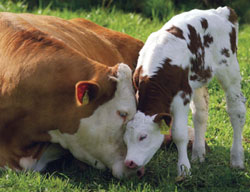Out of all the ways to reduce carbon emissions, eating less meat isn’t the option you’d expect Norway to choose – especially for the military.
But that’s exactly what this meat-dependent country is doing. Last week, the Norwegian army launched its first "Meatless Monday" at one base, and it plans to expand the practice to more bases this year.
Noting that eating meat is responsible for 15% of global greenhouse gases, the Army says it can reduce consumption by 330,000 pounds a year if all units participate at home and abroad.
The Army has already met its goal of sourcing 15% organic food, Pal Stenberg, a nutritionist and navy commander who head the army’s catering division, told The Atlantic.
Only 1-2% of Norwegian citizens are vegetarians.
So far, soldiers are accepting the change, often not even aware that they’re eating beans instead of meat in tacos, for example. But Stenberg is doing lots of educating on the reason for the switch, saying the project will fail otherwise.
"It’s not about saving money," says Stenburg. "It’s about being more concerned for our climate, more ecologically responsible and also healthier."

While the world is concerned about how to feed a population of 9 billion people in the years ahead, especially with a changing climate, research shows that it’s not the absolute number of people that’s the biggest problem – it’s that as they move up the economic ladder, they eat much more meat.
In the US, meat-eating has dropped 10% over the past 8 years to 166 pounds per person, passing "peak" meat.
Worldwide, agricultural activity, especially livestock production, accounts for about 20% of total greenhouse gas emissions. Agricultural methods (organic versus petroleum-based), the grains grown to feed animals, and shipping food around the world contributes the largest measure of emissions.
Victory for Seals & Morale Behavior
In other news regarding Norway, along with Canada the countries lost in their attempt to overturn a European Union ban on seal products. The World Trade Organization ruled in the EU’s favor, saying they have the right to outlaw products on moral grounds.
After decades of trying to get Canada in particular to stop the brutal, unnecessary annual practice of clubbing baby seals to death, the EU banned all seal products in 2010 – using market forces to stop the practice. Canada says it will appeal, we haven’t heard from Norway yet.
Despite citizen opposition, the Canadian government continues to subsidize the yearly hunt, which benefits a tiny group of fisherman. Seal bans are also in force in the US, Mexico, Russia and Taiwan.
